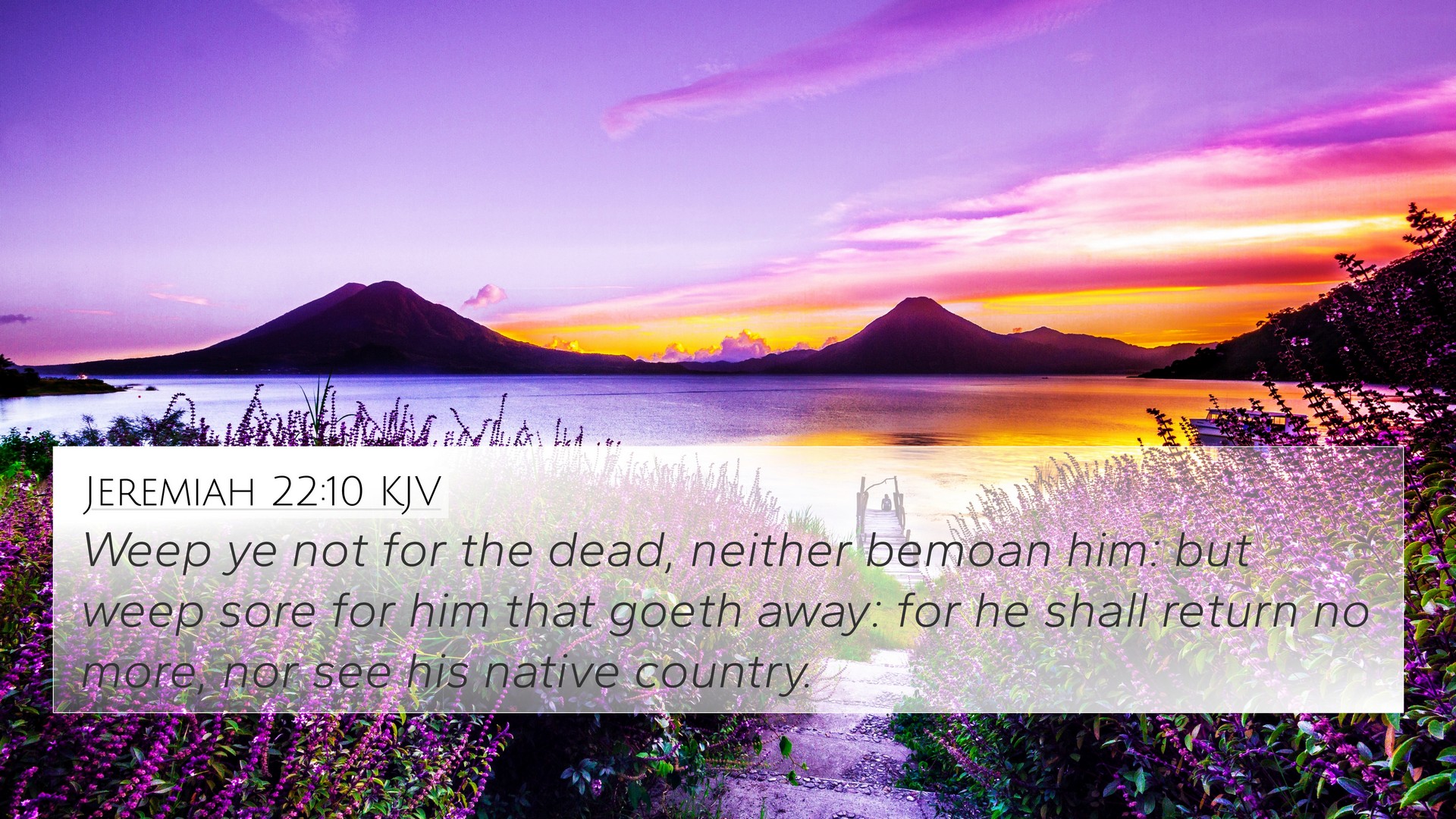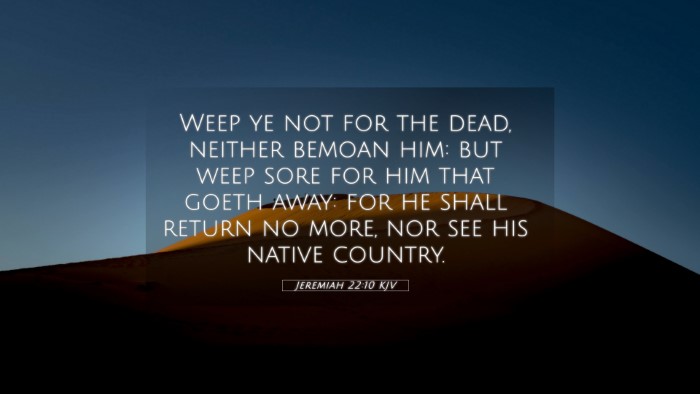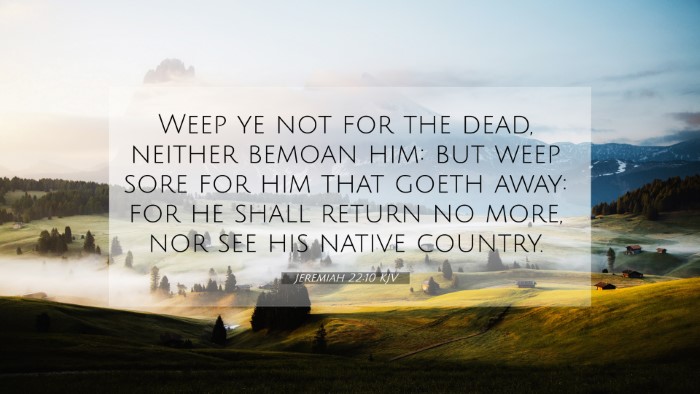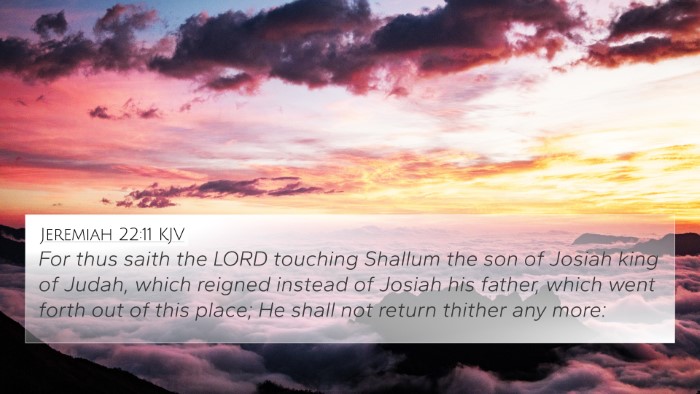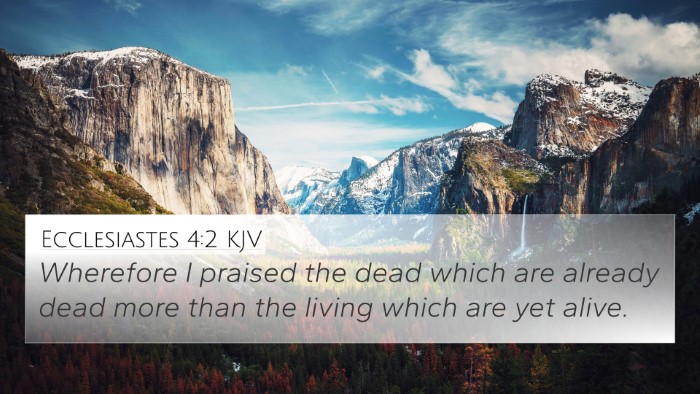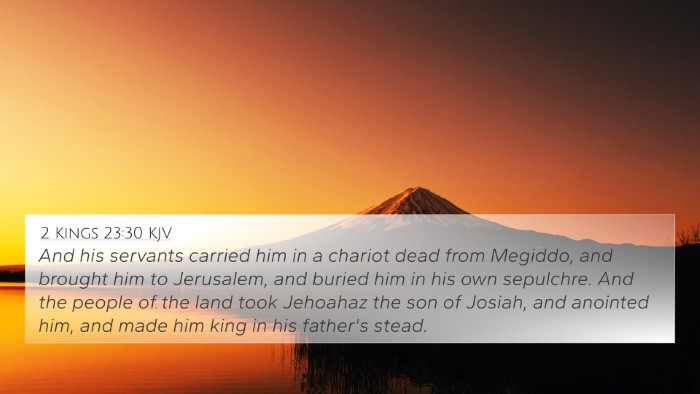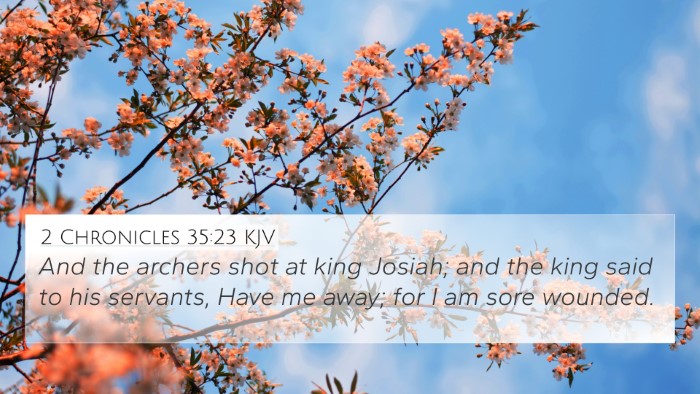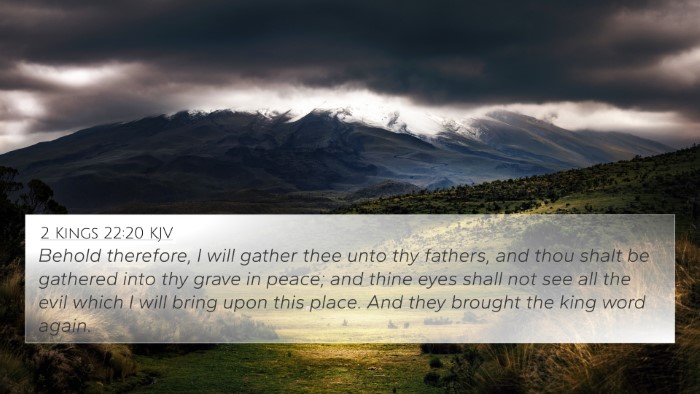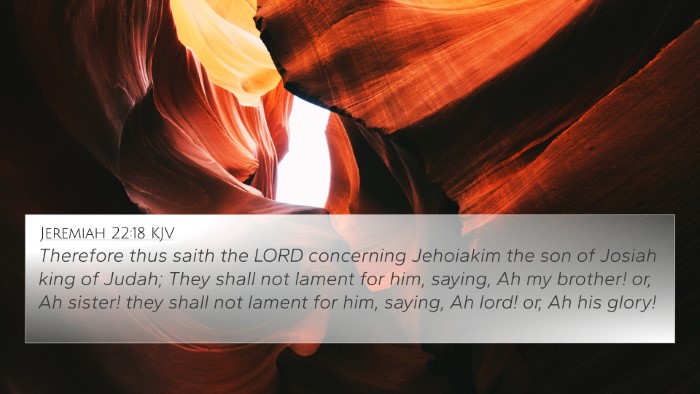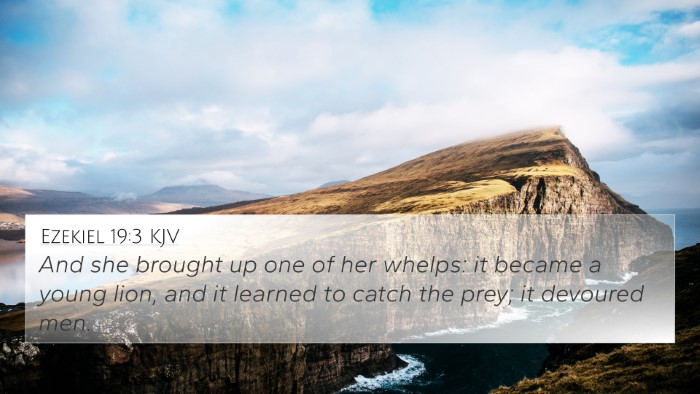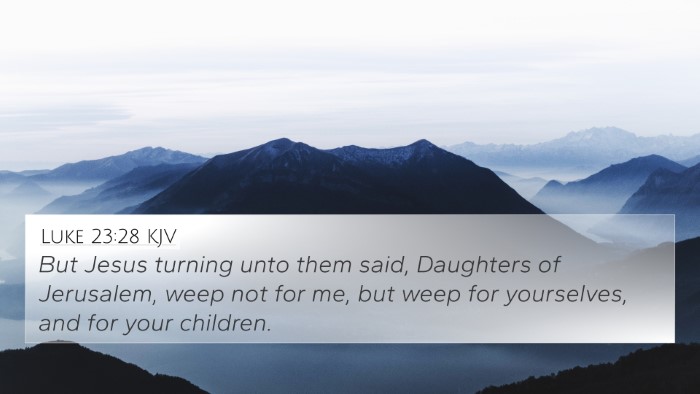Understanding Jeremiah 22:10
Jeremiah 22:10 states, "Weep not for the dead, neither bemoan him: but weep sore for him that goeth away: for he shall return no more, nor see his native country." This verse offers profound insights into the nature of loss and mortality, encapsulating themes of grief and the irrevocable nature of death while urging a focus on those still living who have the potential to change.
Meanings from Public Domain Commentaries
Insights regarding this verse can be drawn from several esteemed biblical commentaries, such as those by Matthew Henry, Albert Barnes, and Adam Clarke. Here is a synthesis of their perspectives:
Matthew Henry's Commentary
Matthew Henry elaborates that the weeping mentioned refers not to those who have died but rather to those who live and will suffer the consequences of their choices. He emphasizes the idea that it is natural to grieve for the dead, yet the greater sorrow is reserved for those who remain alive, particularly if they have strayed from God’s path. He suggests that such lamentation is tied to the loss of opportunities for repentance and redemption, indicating that living a life apart from God is a cause for greater grief.
Albert Barnes' Notes
Albert Barnes focuses on the implications of the verse within the socio-political context of Judah during the time of Jeremiah. He highlights the inevitability of mourning but urges the people to recognize that the dead cannot return, contrasting this with the living who still have a chance for repentance. Barnes suggests that this reflects broader themes in scripture where the emphasis is placed on life choices and their consequences as they relate to divine judgment.
Adam Clarke's Commentary
Adam Clarke interprets the verse as addressing the futility of excessive mourning for the dead, particularly in recognizing that such actions cannot alter the state of the deceased. He draws attention to God’s message that the living should prioritize their relationship with Him and their moral choices. Clarke adds that the verse serves as a reminder of the temporary nature of life and the importance of living with purpose and alignment to God's will.
Bible Verse Cross-References
This poignant verse can be connected to several others that encapsulate similar themes of life, death, and God's judgment:
- Ecclesiastes 7:2: "It is better to go to the house of mourning than to go to the house of feasting: for that is the end of all men; and the living will lay it to his heart."
- Lamentations 3:39: "Wherefore doth a living man complain, a man for the punishment of his sins?"
- Luke 9:60: "Jesus said unto him, Let the dead bury their dead: but go thou and preach the kingdom of God."
- James 4:14: "Whereas ye know not what shall be on the morrow. For what is your life? It is even a vapor, that appeareth for a little time, and then vanisheth away."
- Hebrews 9:27: "And as it is appointed unto men once to die, but after this the judgment."
- Matthew 5:4: "Blessed are they that mourn: for they shall be comforted."
- Romans 14:8: "For whether we live, we live unto the Lord; and whether we die, we die unto the Lord: whether we live therefore, or die, we are the Lord's."
Thematic Applications and Interpretations
In unpacking Jeremiah 22:10, we uncover thematic connections that resonate throughout Scripture, focusing on the fragility of life, mourning, and recovery:
- Life Choices: This verse underscores the significance of decisions in life, particularly in relation to God’s will.
- Enduring Grief: The process of mourning is integral to human experience, marking a distinction between those who have passed and those who still have a choice.
- Redemption and Repentance: Highlighting the opportunity for repentance emphasizes God's ongoing mercy and grace toward the living.
- Cultural Impacts: Reflecting on the societal customs of mourning provides insight into the communal aspects of grief.
Why Cross-Referencing is Important
Cross-referencing allows for a deeper understanding of biblical texts, revealing connections and insights that may not be immediately apparent. Tools for Bible cross-referencing can serve as guides in this exploration:
- Bible Concordance: A tool that helps locate verses based on keywords or phrases.
- Bible Cross-Reference Guide: Resources that provide thematic links between passages.
- Cross-Reference Bible Study: A method of Bible study that connects multiple verses around common themes.
- Bible Chain References: A technique for tracking related verses across different texts.
Tools for Effective Cross-Referencing
Using a cross-reference system in Bible study can lead to heightened spiritual understanding. Methods include:
- Identifying Connections: Finding relations between Old and New Testament verses.
- Comparative Study: Analyzing similarities between various biblical writings.
- Thematic Mapping: Linking themes across different books of the Bible.
Conclusion
In conclusion, Jeremiah 22:10 vividly illustrates the human condition regarding mortality and the importance of living in alignment with divine principles. The cross-references provided establish a comprehensive biblical dialogue on grief, life, and the redemptive love of God, enhancing our understanding of the interplay between life and the choices we make. This analysis encourages continued exploration of the connections between biblical verses, offering profound insights for personal reflection and study.
